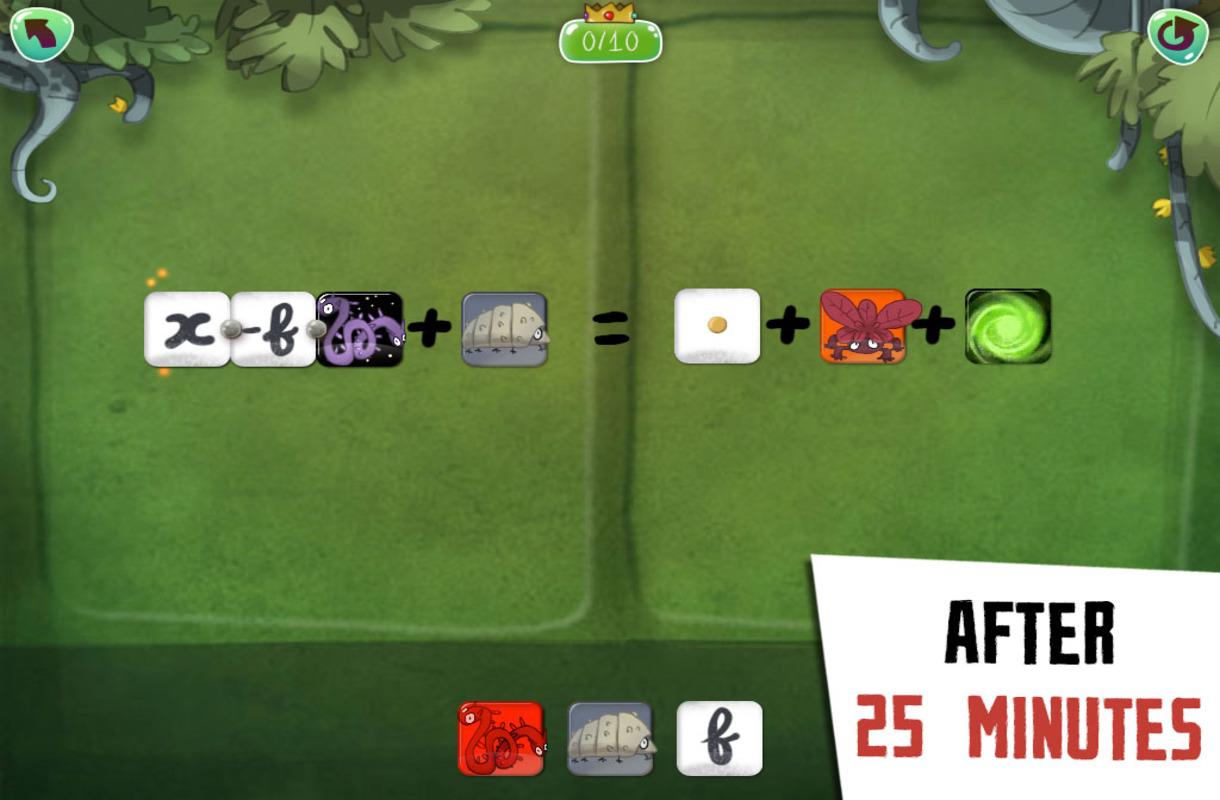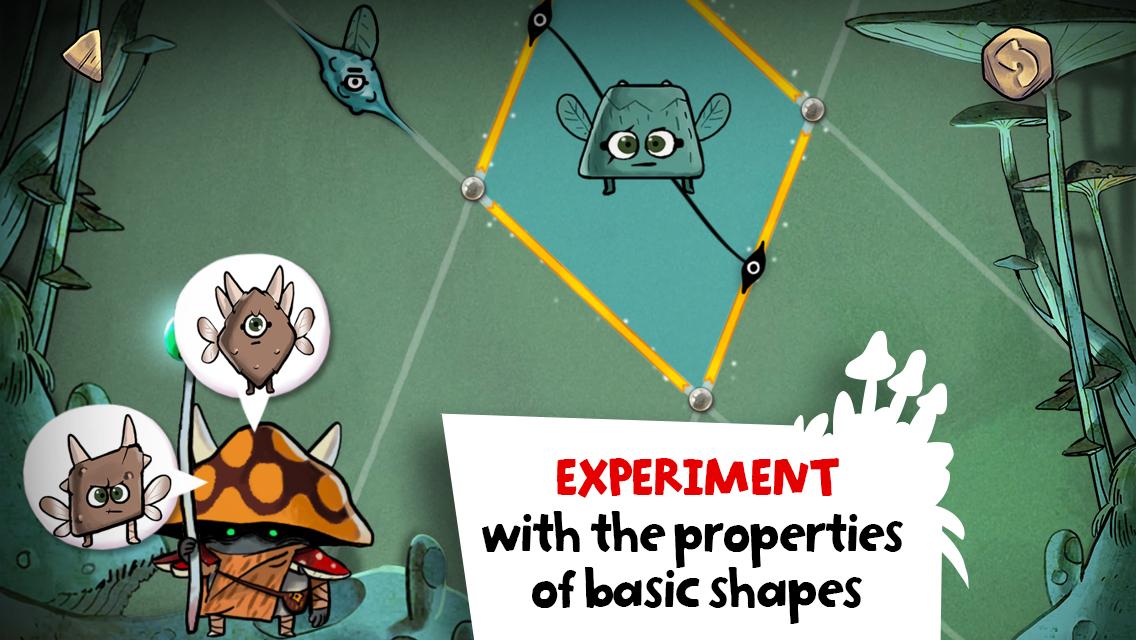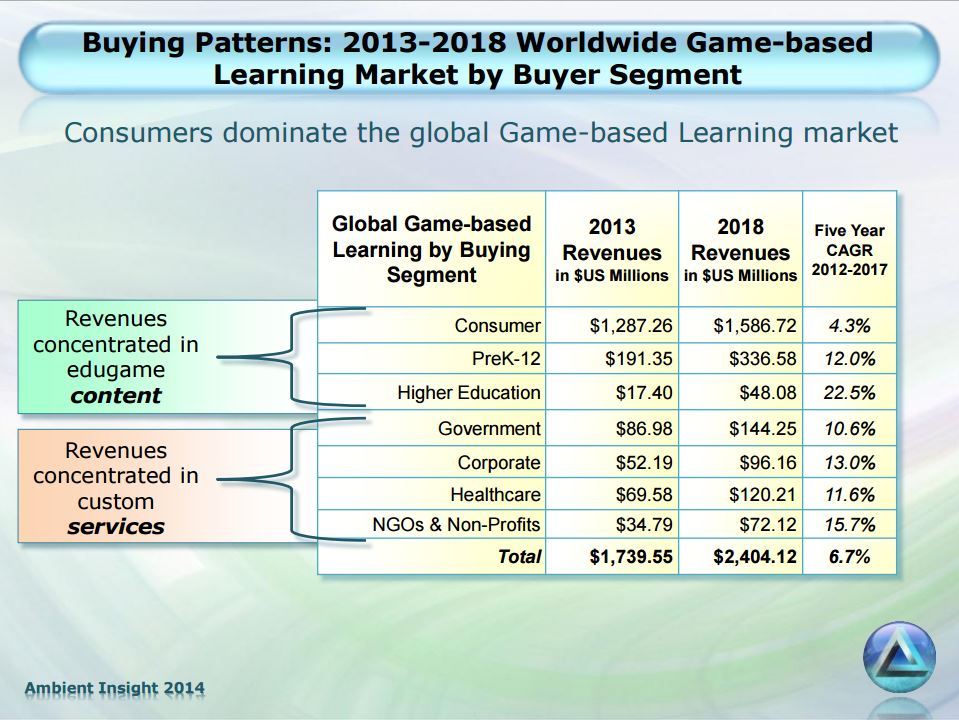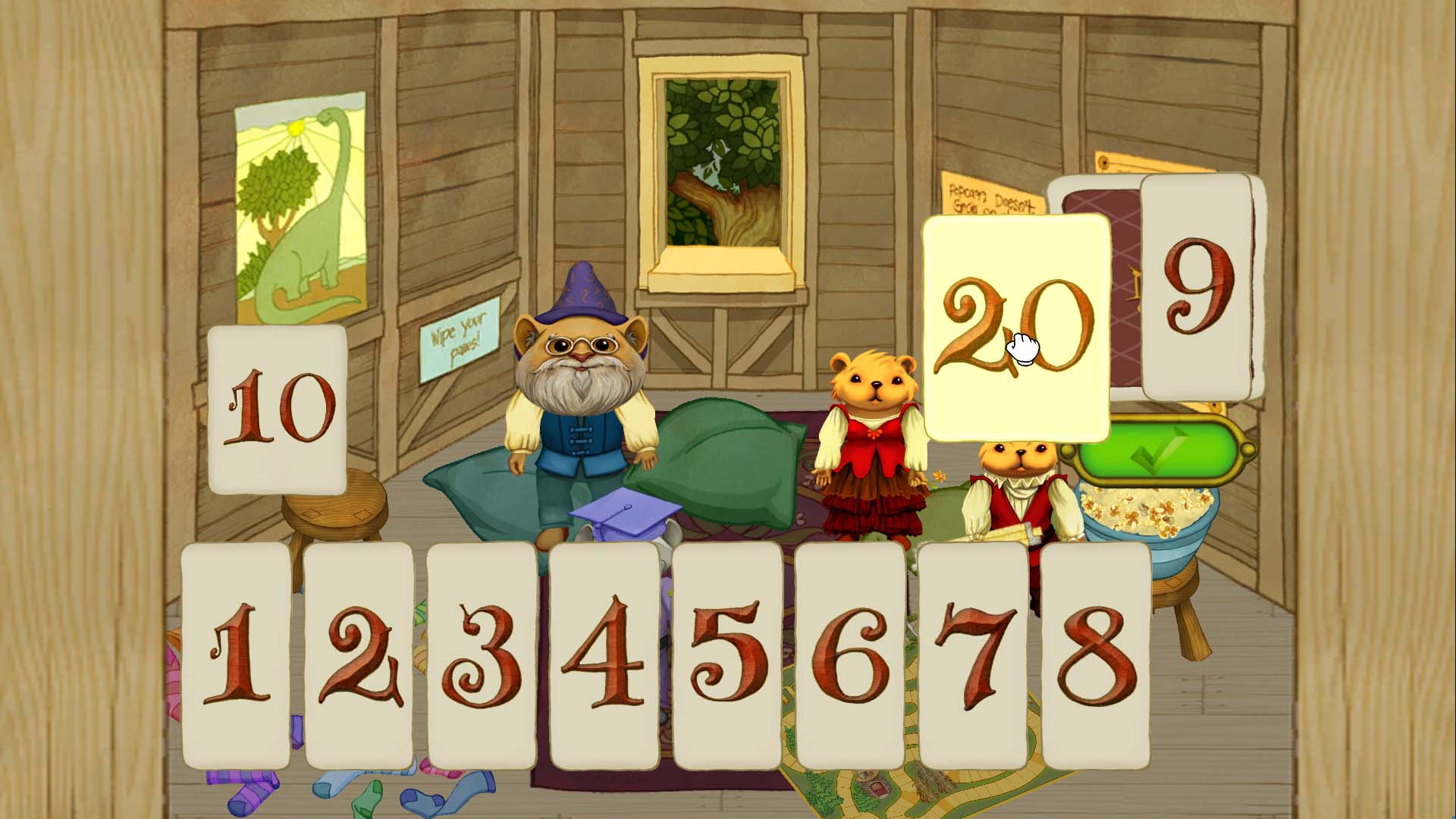It’s harder making educational games than you might think.
The market for what are collectively known as learning games was worth $1.8 billion globally in 2013, and it’s expected to grow to over $2.4 billion by 2018. But revenue from selling to schools represents just a small proportion of those figures — $191 million in 2013, rising to $336 million in 2018. With no centralized educational sales platform and limited school budgets often tied up in red tape, it’s tough for dedicated educational game developers to turn a profit.
The U.S. government increasingly recognizes the value of educational games, and a grant scheme is helping encourage more development in this tough climate. Offering up to $1 million in funding, the Small Business Research Program at the Institute of Education Sciences helps support research and development into a variety of education technology products. Over the past 10 years, proposals for educational games have grown from just 5 percent of total applications to around 40 percent.
I spent time talking to three developers — including two who’ve received SBRP grants in the past — to find out what it’s really like at the front lines of the educational game scene right now.
Teaching 5-year-olds algebra
One of the most popular educational titles of recent years is one that’s struggling to find a place in schools. DragonBox Algebra is the mobile brainchild of Jean-Baptiste Huynh, a former high-school math and economics teacher from Norway. Huynh wanted a game to help teach his students — and his own kids — the bigger picture when it came to math, and he was hugely disappointed by what was already on the market.
“I didn’t find what I wanted,” he told me over a Skype chat. “There were almost no games where math was in the game mechanics. No games with something we can manipulate.”
That idea of manipulation is key to what Huynh wants kids to do with math. He strongly believes that they need to manipulate and play with math concepts in a physical way before they can begin to think about them more abstractly.
Hyun, along with Patrick Marchal — a Ph.D. in cognitive science — created the educational game studio WeWantToKnow and set out to build something they had no idea whether could actually achieve.
“We didn’t know at first we could create such a game,” said Huynh. “We did a lot of research and development — always trying to push the boundaries between entertainment and education.”
Hyun explained his design process, which WeWantToKnow has now transferred to three successful educational titles on Android and iOS — DragonBox Algebra 5+, DragonBox Algebra 12+, and DragonBox Elements — along with one work-in-progress, DragonBox Numbers.
“You don’t start with a story,” said Huynh. “You don’t start with dragons. You start really with pedagogy.”
“First, you take what you want to teach or what you want kids to learn, and you create what I call a digital manipulative. You design a virtual object with the characteristics, the features, of the real objects. Like in math, if it’s an equation you need to manipulate an equation. If you want to manipulate triangles, then you have to design a way kids can manipulate triangles. It’s an engineering problem.”
This logical approach to tackling a single area of learning can be replicated across different topics and subjects, according to Huynh, making it incredibly valuable. “That’s the beauty,” he said. “It could be applied to reading, coding — anything where you have a language and rules. With mathematics, the beauty of it is that it’s very consistent.”
DragonBox Alegbra’s top-down approach to big mathematical concepts lets kids as young as five tackle basic algebra. But therein lies the problem. Schools don’t want their 5-year-olds working on algebra; they want them learning the basics of the number system.
Educational freedom
Huynh says that freedom from the school curriculum is what really helps set DragonBox games apart, but he admits it’s then tough to sell the idea to schools without repackaging it. “The big problem in schools is we cut everything in small bits,” he said. “The reason we can innovate [at WeWantToKnow] is because we don’t pay attention to the curriculum. We are our own masters.”
But there are already forward-thinking teachers taking DragonBox Alegbra seriously, and Huynh is working on an adapted version of the game that’s more classroom-friendly.
In the meantime, WeWantToKnow is finding great success in the consumer market, having recently passed 500,000 downloads of its three premium-priced apps. Most of those sales have been to parents and homeschoolers, says Huynh, and the majority have come via word of mouth. “We are really lazy at marketing,” he said.
Huynh is especially happy that parents are using DragonBox Algebra to turn helping kids with their homework from a confrontation to a shared learning experience. It’s something I can relate to as a parent who’s battled with many homework assignments myself.
“With homework, the more you talk, the less they understand,” said Huynh, “and it destroys a little bit of the relationship between parents and kids. I want to replace this bad time with something of better value. As much as homework is a nightmare, learning with your kids is fantastic. One of the most beautiful things you can have in your family is when you learn something [together].”
I wondered if it’s even worth pursuing the schools market, given the success WeWantToKnow has had with direct consumers. “You have to be forward thinking,” said Huynh. “We’re in contact with Uruguay and they’re rolling out tablets to all kids [in schools]. France is going to do that from next year, too. You have a big hardware push for tablets and that means the market is going to increase dramatically because they will need the content. You will need really, really good content that works. It’s absolutely worth the investment because there’s going to be a huge, huge wave.”
Getting teachers to adapt
Getting tablets in classrooms is a great step forward, as it eliminates the compatibility problems of old PCs and Chromebooks, which aren’t really suitable for gaming. But teachers need to feel confident in the technology they’re being given and understand how best to use it.
“Traditional schools are still reeling from the fact that they have devices now,” said Dan White, founder of educational specialist Filament Games in a phone chat. “They’ve got this hardware and it requires an entirely new curriculum … and they’re still just trying to figure out what to do with these devices.”
Filament has benefitted from the Department of Education’s SBRP funding, and it’s created some impressive educational games — like Reach for the Sun and Crazy Plant Shop — as a result. Despite this success, though, White says that making teachers aware of the best games for their classroom is tricky, particularly as so many educational games look great but just deliver limited “skill and drill” opportunities to kids.
“That’s actually the premise on which our company was founded 10 years ago,” said White. “Our original slogan was, ‘Learning games that don’t suck.’”
“I’m honestly kind of astounded that in 2015 there’s still software that calls itself a game that is essentially a practice app with pretty graphics,” he said. “But what that tells me is that’s what a lot of teachers want. Whether they want it because they think it’s a good instruction tool or whether they just don’t have the literacy to really know what a good game is … It’s definitely one of those things.”
Grant funding versus the market
White told me that Filament is actually starting to move away from the grant model of funding, where it’s so easy to get caught up in the application process that studios can forget the needs they should be fulfilling.
“We probably won’t be applying for any more grants in the immediate future,” said White. “Like any funding, when you focus your efforts on that source of funding, you craft all your thinking about why you will succeed around what you think that fund wants to hear. It’s important that we start to do products that are extremely market driven.”
So Filament has been listening to teachers about what they want from educational tech. As a result, it’s currently building a creative tool called Discussion Maker that supports classroom discussions, making them easier and more fun for kids. By actively listening to the market — in this case, teachers — White says Filament has not only made discussion more engaging for kids, but it’s also solved a problem that teachers had in trying to implement “21st Century pedagogy.”
But even with this market-driven approach, making money in the educational arena is still damn hard, especially if you need to make it quickly.
“If you were Venture Capital funded, and you had a short runway, and you had a to make a profit out of something quickly,” said White, “I think you’d be in trouble.” Turning a quick profit in the educational space is “frankly impossible,” he reckons.
Part of the problem is that teachers are usually the biggest advocates for your games, but they rarely hold any buying power themselves. “I think the landscape would be different if teachers had a bunch of money they could spend on things they think are interesting,” said White.
The distribution dilemma
Marshall Gause came to the educational scene from a console background, via social games. Back in the day, he made games for the Nintendo 64, PlayStation, and Sega Dreamcast. More recently, Gause, the president and creative director of Oregon-based studio Thought Cycle, has helped create the PC and tablet game NumberShire, an educational title for kids in K-2 who are struggling with basic number concepts.
Also a recipient of Department of Education funding, Thought Cycle has found that sales and distribution are the two toughest hurdles for educational studios, particularly those that are new to the scene.
“The education market is a long, slow cycle,” said Gause in a Skype chat. “It takes them a while to make decisions on what they’re going to use and to adopt them. We’re hopeful that the 60 districts that are using NumberShire now are going to, in the fall, re-up and have more schools within their districts using it. Schools by their nature are risk-averse in terms of purchasing; they have to be.”
The trickiest part of the sales process, says Gause, is that you’re so far removed from your user. The student, who’s the person you’re trying to engage with the game, has no buying power, and often neither does the teacher. “Then you have your superintendent or administrator who has the purchasing power but is three layers removed,” he said.
“There’s money there,” said Gause. “But there’s this three layer or more purchasing structure. That’s why so many of the big publishers still dominate.”
Thought Cycle partnered with the University of Oregon to research and create NumberShire, and it’s now using the University’s online marketplace to help sell to schools. It’s just one of numerous ways that schools and districts can buy educational software, including the Filament Games store which will soon be selling “high quality” third-party games alongside its own titles. As Gause puts it: “Everyone’s trying to be the Steam for educational games.”
The government perspective
I reached out to Edward Metz, the SBIR program manager at the Department of Education to ask why the government’s putting such stock in educational games and investing so heavily in their development.
“From my perspective, the discussion on games for learning has shifted,” said Metz via email. “10 years ago, the question was, ‘Are games appropriate for education?’ Now, that question has been replaced by, ‘How can games be optimized to impact learning — both in providing individualized learning opportunities for students and in being integrated into classroom practice and providing real-time data that teachers can use to guide instruction.’”
Metz pointed out that the quality of game proposals has increased tremendously over recent years, and this is partly why more gaming projects are getting grant approval. “More game developers are now basing their gaming concepts in learning theory,” he said. “And more developers are partnering with education researchers to iteratively develop the games based on feedback from initial student and teacher users.”
All developers that get funding approval have to commit to a pilot study that shows their game prototype is working as intended,and that teachers and students would find it useful. They then need to complete a second research phase during full development in order to secure the bulk of the funding. This again involves testing the game with a group of students to see how well it’s working.

Above: Schools are starting to get devices like iPads that they need to figure out how to best use.
Thought Cycle went through this process with NumberShire, and kids using it showed good improvements in basic number skills over the research period. Gause said it was something they had to do, but it was still a somewhat nervous testing period. “We were going to have to live with the outcomes,” he said. “We really had to make sure we were building something that would be effective. We had to do it, we felt it was the right thing to do, and we felt it added value to [the game] as well.”
Gause thinks that such empirical testing is going to be more standard for educational games going forward. With more and more titles out there, he says that “some measure of efficacy is going to be important.”
The future of educational games
Speaking to Jean-Baptiste Huynh, it was clear he considers the learning games market to be something very new. He was keen to differentiate games that actually teach kids something from those that are simply used for assessment or practice. “There is no learning industry, almost, in games,” he said.
Gause also sees educational games’ future being very different to its present, but he says it’s going to be a tough journey ahead and will require a different way of thinking.
“It needs to be a holistic thing,” he said. “There are games like DragonBox which I think is really great. They’re out there, but they’re sort of the perfect storm: Building something that’s engaging and has educational value.”
And Dan White thinks that developers will start to make money from educational games, just not yet. “I do think it’s possible,” he said. “I don’t think it’s possible quite yet; I think it’s a long game.”
VentureBeat's mission is to be a digital town square for technical decision-makers to gain knowledge about transformative enterprise technology and transact. Learn More






